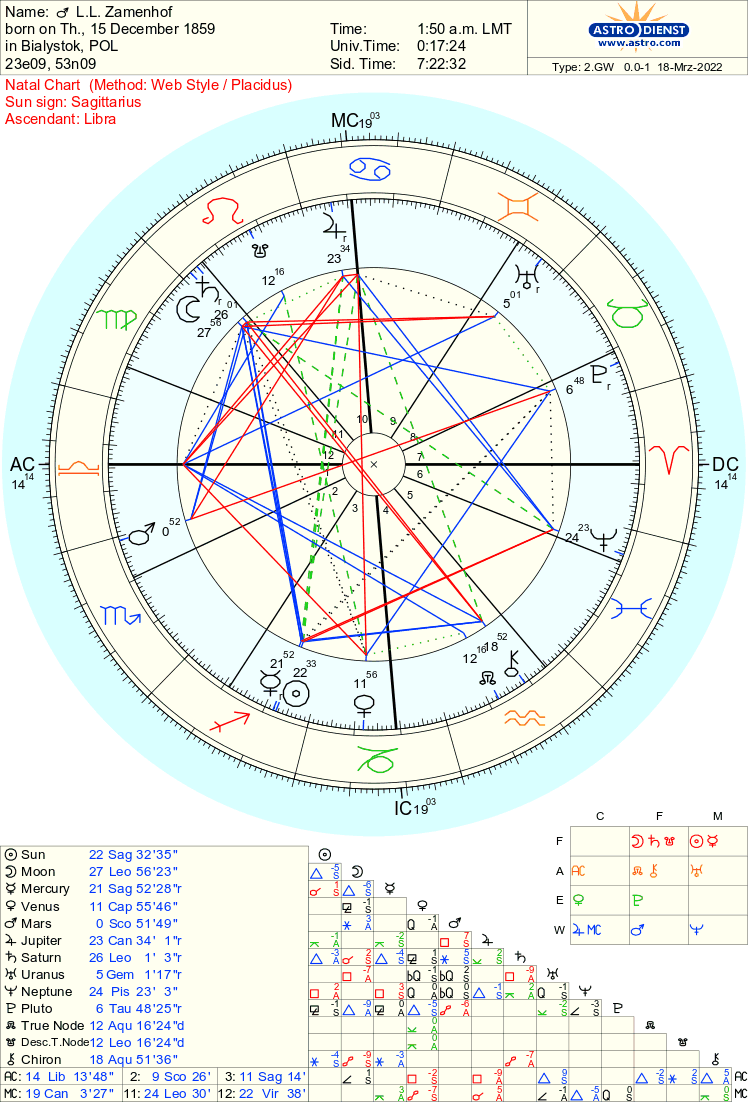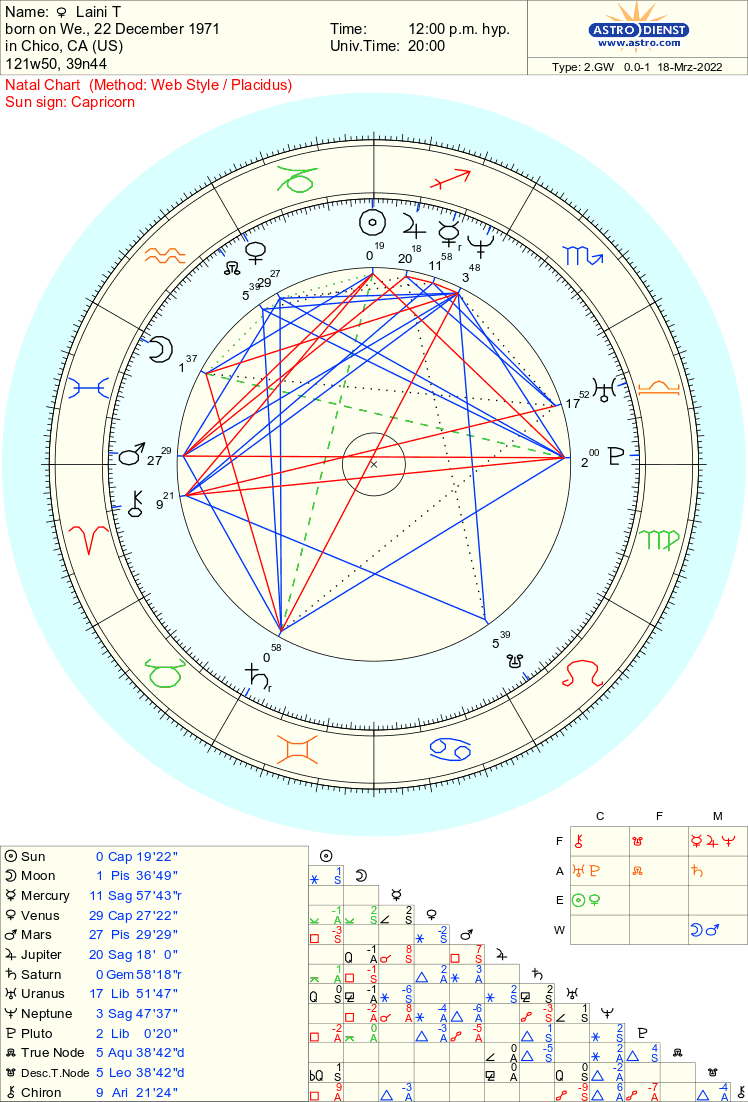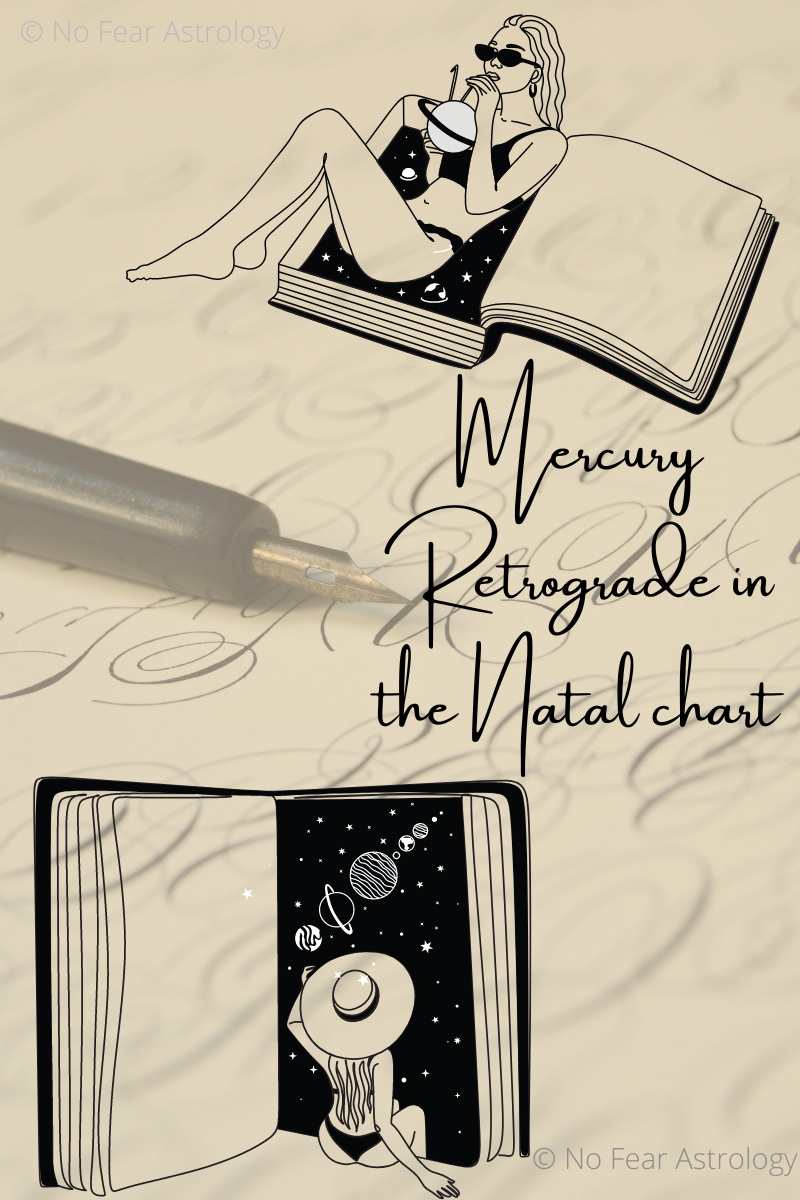Your Mercury in retrograde is not a bad thing. It can give you different perspectives that you won't be able to find anywhere else. Let's look at how some influential people used their Mercury retrograde to their advantage, and how they worked with it, not against it.


These charts are from the creator of Esperanto, one of the first attempts at a universal language that is still spoken today. The second chart is from my favorite author. The first thing you'll probably notice about these charts is not only that Mercury is in retrograde in each chart, but also the fact that Mercury is in fall in Sagittarius.
So when we think about Mercury, as the planet of communication, ideas, writing, speech, and language and we think of retrograde planets as the opposite of whatever that planet represents, we have a problem on our hands. Because these people, especially L.L. Zamenhof, have forever left their mark on the world. How he thought of communication was unrivaled. So the we think of Mercury retrograde as being bad at communicating, we may have to acknowledge that maybe our view is skewed. Maybe that's not what Mercury retrograde means. Or at the very least, we have to accept that it cannot be the whole story.
Before we go further, I’d like to point out a few other similarities.
- Their Mercurys are both in Sagittarius
- They both have retrograde Saturn
- Their Venuses are both in Capricorn
- Their Nodes are both direct
- Their Nodes are both in a nodal reversal situation, one in Leo/Aqua and the other in Aqua/Leo
- Their Neptunes are both ruled by Jupiter or Neptune ruled signs, Pisces and Sagittarius
There are other similarities, I’m sure, but little for the point of this article that I’m willing to dissect.
For someone to invent a language, and another to become a well known, published author doesn’t fit the bill for what we currently tout as Mercury retrograde. So here’s the deal: We either deny what we know, and go in search of answers. We see the possibilities, chance, and challenges for what they are. Or, we shun their very lives because it does not fit into our neat little views of astrology as we know it.
I choose the former option, and go in search of more in-depth and quality answers. Now, do I have all of this wrapped up to show you in this article? I cannot pretend to. But I do hope that we can explore this further, and hope it will lead to more answers (or, even more exciting, more questions!)
If we’re going to get very specific, Laini’s Mercury is technically stationary direct- and while stationary planets are often touted as the most powerful parts of the chart, it still is a big part of the retrogradation cycle. L.L. Zamenhof’s Mercury is very much in retrograde.
So do these people need more time to think about it, as some suggest? Do they need more time to think and process? Are they simply more private? Some of those questions can’t be answered purely based off retrograde planets. It would take houses, aspects, and signs, to consider it as well.
So, my friends, I cannot pretend to answer this question now- as I am still doing research into the matter. But I do hope that this will evoke some questions in you. What if it’s more to it than we know? Like, I’m not discounting our current observations- but merely suggesting that that may not be all. And we’d do well do look into it.
So here are some things to get the wheels turning- does Mercury in Sagittarius have anything to do with it? Does being Jupiter ruled impact them? What about the much debated Mercury’s rulership over Aquarius? Does this have anything to do with their retrograde Saturns, the ruler of Aquarius? Or hell, even Uranus? Especially as Uranus is a modern ruler of Aquarius? Do their direct nodes in Aquarius have anything to do with it- or the fact that their Uranuses are both in an air sign? The fact is much to be debated and leaves much to be desired.
But the fact of the matter is- both Mercurys prove a powerful point about retrogrades. One that screams, “Look at me!” So whether you think about retrogrades as being a reflective cycle, or even as a something potentially “harmful” (which I don’t believe, the stars are not going to come down and eat you), it can’t be ignored that people with these placements can have a very powerful, very positive, impact on the world. Perhaps it calls for a cross-cultural comparison of astrological systems. Perhaps it calls for a complete overhaul of what we know. Maybe it points to a sense of power, a sense of change, or a new way of thinking (no pun intended) about things. But as things stand right now, it certainly isn’t a bad thing.
Other resources on Mercury Retrograde, if you’re interested:
Gregory Rozek’s wonderful article on retrogrades
Steven Forrest’s blog on natal retrograde planets
Thanks so much for reading! Have a great day and let me know what you want covered next.







